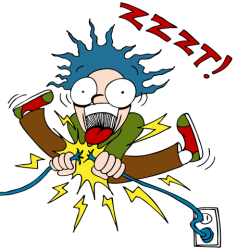The all-purpose heavy duty Climate Chaos thread (sprinkled with hope).
Comments
-
2°C: Beyond the limit
Radical warming in Siberia leaves millions on unstable ground
This is a huge in-depth article (an excellent one), so I can't actually post it. Hopefully those who have access to WaPo will read it. (there were a few people mocking my statements about the forthcoming climate change migration.... Siberia is a good example of how it happens. It will become a bigger and bigger problem from right now, and sometime in the not-too-distant future those who mocked the idea will realize how oblivious they were).
With all its sham, drudgery, and broken dreams, it is still a beautiful world. Be careful. Strive to be happy. ~ Desiderata0 -

Give Peas A Chance…0 -
-
For those few and rare global warming deniers, more evidence has surfaced:
Grass growing around Mount Everest as global heating intensifies
"Shrubs and grasses are springing up around Mount Everest and across the Himalayas, one of the most rapidly heating regions of the planet."
"It's a sad and beautiful world"-Roberto Benigni0 -
Warm water discovered beneath Antarctica's 'doomsday' glacier, scientists say
https://news.yahoo.com/warm-water-discovered-beneath-antarcticas-164951744.html
_____________________________________SIGNATURE________________________________________________
Not today Sir, Probably not tomorrow.............................................. bayfront arena st. pete '94
you're finally here and I'm a mess................................................... nationwide arena columbus '10
memories like fingerprints are slowly raising.................................... first niagara center buffalo '13
another man ..... moved by sleight of hand...................................... joe louis arena detroit '140 -
mickeyrat said:Warm water discovered beneath Antarctica's 'doomsday' glacier, scientists say
https://news.yahoo.com/warm-water-discovered-beneath-antarcticas-164951744.html
"Florida sized block of ice." Damn. 74,000 square miles. "A runaway collapse of the glacier would lead to a significant increase in sea levels of about two feet..." Double damn.
"It's a sad and beautiful world"-Roberto Benigni0 -
Thought I'd ask this here since I'm getting roasted on The Porch:
Is it unreasonable to ask why Ed, as someone who seems to be a climate change activist, would take a corporate gig with a private jet company?0 -
Feb 2 and 3 Columbus Ohio. highs near or at 60...... Dead middle of winter. Same as Jan early.....
_____________________________________SIGNATURE________________________________________________
Not today Sir, Probably not tomorrow.............................................. bayfront arena st. pete '94
you're finally here and I'm a mess................................................... nationwide arena columbus '10
memories like fingerprints are slowly raising.................................... first niagara center buffalo '13
another man ..... moved by sleight of hand...................................... joe louis arena detroit '140 -
I can only read temperature in Canadian, so I'm guessing that's warm? Just dumped snow here, trees are happy.
Overall, with the warming trend, glacier melt, sea level increases, climate migration expected, extreme weather and fires, I'm still thinking its' not gonna get super crazy fun until the thermalhaline circulation of the ocean changes currents.Post edited by Spunkie onI was swimming in the Great Barrier Reef
Animals were hiding behind the Coral
Except for little Turtle
I could swear he's trying to talk to me
Gurgle Gurgle0 -
tish said:I can only read temperature in Canadian, so I'm guessing that's warm? Just dumped snow here, trees are happy.
Overall, with the warming trend, glacier melt, sea level increases, climate migration expected, extreme weather and fires, I'm still thinking its' not gonna get super crazy fun until the thermalhaline circulation of the ocean changes currents.roughly 15C.....typical or usual should be between -15 and 0C_____________________________________SIGNATURE________________________________________________
Not today Sir, Probably not tomorrow.............................................. bayfront arena st. pete '94
you're finally here and I'm a mess................................................... nationwide arena columbus '10
memories like fingerprints are slowly raising.................................... first niagara center buffalo '13
another man ..... moved by sleight of hand...................................... joe louis arena detroit '140 -
mickeyrat said:Feb 2 and 3 Columbus Ohio. highs near or at 60...... Dead middle of winter. Same as Jan early.....That's t-shirt weather in Columbus!We're having a few days of cool weather and a few nights just a wee bit below freezing, but last night was only our first frost of the year which, at 2,000 foot elevation (609.6 meters) in the Sierra Foothills, that's a late start for frost here. And just three days ago, I was wearing a t-shirt at work."It's a sad and beautiful world"-Roberto Benigni0
-
seems to be a trend where its like the seasons have shifted. sone years we've had regular winter weather in april and maybrianlux said:mickeyrat said:Feb 2 and 3 Columbus Ohio. highs near or at 60...... Dead middle of winter. Same as Jan early.....That's t-shirt weather in Columbus!We're having a few days of cool weather and a few nights just a wee bit below freezing, but last night was only our first frost of the year which, at 2,000 foot elevation (609.6 meters) in the Sierra Foothills, that's a late start for frost here. And just three days ago, I was wearing a t-shirt at work.
_____________________________________SIGNATURE________________________________________________
Not today Sir, Probably not tomorrow.............................................. bayfront arena st. pete '94
you're finally here and I'm a mess................................................... nationwide arena columbus '10
memories like fingerprints are slowly raising.................................... first niagara center buffalo '13
another man ..... moved by sleight of hand...................................... joe louis arena detroit '140 -
mickeyrat said:
seems to be a trend where its like the seasons have shifted. sone years we've had regular winter weather in april and maybrianlux said:mickeyrat said:Feb 2 and 3 Columbus Ohio. highs near or at 60...... Dead middle of winter. Same as Jan early.....That's t-shirt weather in Columbus!We're having a few days of cool weather and a few nights just a wee bit below freezing, but last night was only our first frost of the year which, at 2,000 foot elevation (609.6 meters) in the Sierra Foothills, that's a late start for frost here. And just three days ago, I was wearing a t-shirt at work.
My wife says the same thing. Could be-- some of our most wintry weather over the last 5 years or so has come in March and April.
"It's a sad and beautiful world"-Roberto Benigni0 -
Are you saying that the captain is telling us the boat is not safe and we're drowning, but it turns out he's out there making small waves on his own?pjl44 said:Thought I'd ask this here since I'm getting roasted on The Porch:
Is it unreasonable to ask why Ed, as someone who seems to be a climate change activist, would take a corporate gig with a private jet company?Post edited by Spiritual_Chaos on"Mostly I think that people react sensitively because they know you’ve got a point"0 -
On Sunday it was 46 degrees Celcius in NSW where I live. Today a much cooler 28 degrees Celcius 🤗 and we have rain coming again yay and my lawn is looking green rather than crunchy brown grass 🙌 The scorched earth near my home where bushfires raged through in November is slowly starting to sprout some green. Unfortunately where the inferno was hottest it's nothing but dirt and charcoal stick trees for many kilometres that may take years to come back and our fire was only 31,000 hectares in size relatively small in comparison to the major blazes that have impacted our beautiful country. Something very different about the last 2 years not so much the weather but more the changes on the ground. Yes it was dry and no rain for a long time but it has just felt strange to watch my neighbourhood change so quickly from what it seemed to be changing from underground. Definitely seemed like the water table underground had diminished greatly but suddenly? Huge 5cm cracks formed in the ground in the roadside drains all of a sudden. Gumtrees were shedding like I've never seen dropping mass fuel loads on the ground and everything was crunchy and tinder dry.0
-
Yeah, I mean the answer seems to be "lol, you actually listen to that?" so I just tapped outSpiritual_Chaos said:
Are you saying that the captain is telling us the boat is not safe and we're drowning, but it turns out he's out there making small waves on his own?pjl44 said:Thought I'd ask this here since I'm getting roasted on The Porch:
Is it unreasonable to ask why Ed, as someone who seems to be a climate change activist, would take a corporate gig with a private jet company?0 -
heres a bit of hope.......
_____________________________________SIGNATURE________________________________________________
Not today Sir, Probably not tomorrow.............................................. bayfront arena st. pete '94
you're finally here and I'm a mess................................................... nationwide arena columbus '10
memories like fingerprints are slowly raising.................................... first niagara center buffalo '13
another man ..... moved by sleight of hand...................................... joe louis arena detroit '140 -
mickeyrat said:heres a bit of hope.......That;'s great! It look so much more hopeful than what was going on when this was written (2007):
 "It's a sad and beautiful world"-Roberto Benigni0
"It's a sad and beautiful world"-Roberto Benigni0 -
pushback on Greta......
_____________________________________SIGNATURE________________________________________________
Not today Sir, Probably not tomorrow.............................................. bayfront arena st. pete '94
you're finally here and I'm a mess................................................... nationwide arena columbus '10
memories like fingerprints are slowly raising.................................... first niagara center buffalo '13
another man ..... moved by sleight of hand...................................... joe louis arena detroit '140 -
but its in the 30’s Wednesdaymickeyrat said:Feb 2 and 3 Columbus Ohio. highs near or at 60...... Dead middle of winter. Same as Jan early..... hippiemom = goodness0
hippiemom = goodness0
Categories
- All Categories
- 149.2K Pearl Jam's Music and Activism
- 110.3K The Porch
- 286 Vitalogy
- 35.1K Given To Fly (live)
- 3.5K Words and Music...Communication
- 39.4K Flea Market
- 39.4K Lost Dogs
- 58.7K Not Pearl Jam's Music
- 10.6K Musicians and Gearheads
- 29.1K Other Music
- 17.8K Poetry, Prose, Music & Art
- 1.1K The Art Wall
- 56.8K Non-Pearl Jam Discussion
- 22.2K A Moving Train
- 31.7K All Encompassing Trip
- 2.9K Technical Stuff and Help









